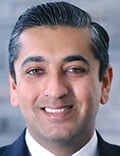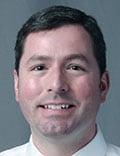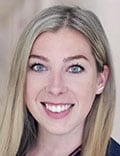Every year, about 60% of international medical graduates (IMGs) go unmatched in the National Residency Matching Program (NRMP). The annual match process pairs medical graduates with compatible residency training programs that allow them to practice medicine in the United States.

Dr Asim Ansari
Asim Ansari, MD, a Canadian who attended medical school in the Caribbean, is all too familiar with the match percentages. Last year, in his fourth attempt, he finally secured a slot as a preliminary-year internal medicine intern at Merit Health Wesley in Hattiesburg, Mississippi. It is an interim position; he will again attempt to match into a traditional residency program during Match Day next week.
“I could almost feel my heart breaking each time I didn’t match,” he told Medscape Medical News. “It’s hard to pick up and go on, but I was determined to match the following year.”
From his experience, Ansari started a TwitterSpaces support group called #MatchMadness for other students who fail to match after several attempts.
Ansari, who hopes to match into a psychiatry residency next week, saw the potential mental health benefits from using TwitterSpaces to talk about the anxiety of the match.
Through the support group, Ansari spoke to a small but growing audience about the emotional challenges of pursuing a career in medicine.
“A few people joined, then a few more, and then an influx of people who wanted to talk about everything to do with the match,” he says. “Then we had a residency program director hop on and start answering questions, and it took off from there.”
Ansari, who has 14,000 Twitter followers, recalled that his first TwitterSpace episode lasted 7 or 8 hours because people were so relieved to talk about their Match experiences with people who understood. The average audience is now 120 people per episode, Ansari reports.
“I realized that there was a need for both a support group for unmatched physicians and more practical resources to help them improve their chances of matching next time, especially for IMGs,” he said.
Mentoring New Physicians
“For better or worse, being a physician is something you are more than something you do,” says Bryan Carmody, MD, residency associate program director at Eastern Virginia Medical School and a pediatric nephrologist at Children’s Hospital of the King’s Daughters in Norfolk, Virginia. “It becomes a very integral part of someone’s identify, and then to reach the point [of advancing to residency] and then not matching can feel like an attack on your core identity.”

Dr Bryan Carmody
Michael Galuska, MD, who has participated in #MatchMadness since it started, can often be found on Twitter advising medical students and unmatched physicians about the Match. Galuska, who directs the emergency medicine residency program at Conemaugh Memorial Medical Center in Johnstown, Pennsylvania, sees value in online networking as unmatched physicians assess their options.
“The main benefit of #MatchMadness participation is the insights listeners get that can help them strengthen their applications,” Galuska says. “We cover so many topics in these TwitterSpaces about rotations, applying, interviewing, and building rank lists with opinions from residents, faculty, and program directors from across many specialties. It’s a way for students to anonymously ask questions and hopefully relieve some anxiety that surrounds this process.”
Anonymity appears to be an important part of what makes #MatchMadness popular, Ansari said. “From the very beginning, I’ve wanted this to be a safe space. We don’t record the Spaces, and we only see their Twitter handle, which helps listeners know their anonymity will be preserved. That’s very important, given the sensitivity of what we discuss.”
Galuska agrees. “I still use my same anonymous handle, although I’m probably not anonymous anymore, but the students really are anonymous, which is important,” he says. “Otherwise, they may not be comfortable asking a question, or maybe there’s something in their application that’s hard to discuss, or they don’t want to call attention to it with program directors.”
Each year, Galuska enjoys hearing from many students who match successfully after he’s assisted them in some way. “I am a first-generation physician and had to navigate much of my career before residency on my own, so this is a way of giving back,” he says.
Obstacles for Non-US IMGs
As a graduate of the Pennsylvania State University College of Medicine, Galuska matched successfully the first time. But others aren’t as lucky.
“Many of the people I advise online on Match Madness and elsewhere are IMGs,” he says. “US IMGs who attend medical school in the Caribbean do US rotations, which may give them some insights into the US residency application process, but non-US IMGs are left in the dark; they don’t have the same access to advisors, and they don’t know the system here.”
Sahil Bawa, MD, is an Indian-trained physician completing a research year at a large urban Midwestern university. He asked to remain anonymous. He’s the first to admit that his path to residency would have been smoother had he known the system. “Until I started participating in #MatchMadness with the various program directors in the Space, I had never had a chance to directly ask questions and understand what they were looking for in an applicant,” he says.
Bawa initially failed his Step 2 US Medical Licensing Exam (USMLE), which he knew would be a significant obstacle to matching. He decided to practice medicine in India to save enough money so that he could live off his savings while navigating the Match. After 3 years, he entered the Match in 2020, not knowing that he should have completed Step 3 of the USMLE first. He didn’t receive any interviews.
By the next year, Bawa had passed Step 3, but it was too late for the results to be part of his Match application. “People from outside the Americas don’t know they should complete their USMLE exams while they’re still medical school,” he says. “If you don’t start until after graduation, that means you’ll add a year or two right there, and programs use a year-of-graduation filter that knocks us IMGs out after 5 years.”
Bawa filled his time by completing multiple short-term clinical rotations throughout the US, and he became serious about online networking. “I emailed 3300 physicians to finally get the research slot that I now have,” he says. “But this year, I had my complete application filed on the day the Match opened, and I’ve had multiple interviews this time.” He said he hopes to match into internal medicine, ideally at his current institution.
Time to Improve
Jane Stringfellow, MD, MPH, a first-year resident in emergency medicine, also credits #MatchMadness with helping her improve her application after she initially failed to match. In her case, a clerical error by her medical school in the Caribbean derailed her first attempt. “During an interview, I learned that my third-year grades hadn’t been uploaded to my transcript,” she says.

Dr Jane Stringfellow
Stringfellow used the extra year to improve her application.
“I realized I froze every time I was on camera for my interviews, so I used #MatchMadness and every chance I got to do mock interviews, because I knew that was my weakness.” She proudly adds that she landed 17 interviews in 2022, compared to four in 2021. She matched into her first-choice program, emergency medicine at Broward Health Medical Center, in Fort Lauderdale, Florida.
Mentoring is another benefit of #MatchMadness, Stringfellow found. On Twitter and in #MatchMadness, she announced that she hadn’t matched and was searching for a mentor. “Multiple mentors came into my DMs [direct messages], including a couple program directors,” she says. “They were really well-known virtual mentors to a lot of people, so I really leaned on them and followed their advice to the letter.”
Stringfellow used other social media avenues, “but I think Twitter and #MatchMadness is different because you get to hear someone’s voice and their tone,” she says. “With #MatchMadness, you’re only entering that space if you’re wanting advice or you have advice to give, and there’s no bashing other people.”
In this way, #MatchMadness is working as Ansari envisioned it, he said. A recent Space, held just after the 2023 Urology Match results were announced, involved 13 rotating speakers eager to help some 240 listeners strategize on next steps. Although many of the listeners presumably hadn’t matched, the overall tone was reassuring and optimistic, offering plenty of specific suggestions, Ansari recalled.
#MatchMadness is not the only Space on #MedTwitter. For instance, psychiatrist and frequent #MatchMadness participant Sadiq Naveed, MD (@SadiqNaveed) also runs his own spaces to support unmatched physicians, as does the Twitter account @GMEpundit.
Ansari was particularly gratified when the residents’ society of a major medical association contacted him for advice on how to start their own TwitterSpaces. “This is a really good technology to help us normalize emotional wellness in medicine,” he says. “It gives all of us who didn’t match a chance to connect and understand that others are going through the same thing, all while helping us improve our chances for matching the next year.”
For more news, follow Medscape on Facebook, Twitter, Instagram, and YouTube.
Source: Read Full Article